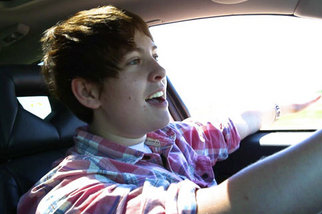“Bully” subject Kelby talks about her involvement in the film and her experiences as an out teen.
PGN: How did you get involved in “Bully”? KELBY: Ellen DeGeneres did a show on bullying and my mom wrote on one of their websites and told them what was going on with me. One of their producers got in contact with Lee [Hirsch, the director], who called me not long after that.
PGN: Why did you want/agree to participate and tell your story? KELBY: I think part of it was being in such a small town. I felt I was the only one, and I got to thinking about it, and there must be millions of kids who feel this way and they can see it and think, “I’m not alone.” This was a great opportunity and a way to express what I wanted to do with my life.
PGN: Do you want to be an LGBT activist? KELBY: I am hoping to. I might go to D.C. for an internship to work with GLSEN [Gay, Lesbian and Straight Education Network], so hopefully doors will open for me in the LGBT community — and hopefully they are receptive.
PGN: In the film, you describe being hit by a car and ostracized. How much of the bullying that you faced occurred after you came out? KELBY: Before [I came out, I was bullied] because I wore glasses, or a headband, or little things like that. It wasn’t too bad. But then, after I came out, it put that target on my back. I was run over by a group of six guys. They left, and didn’t stop to check on me. The teachers were joining in with the students on the bullying in school, and the kids felt they could get away with it because they saw the adults doing it too.
PGN: You describe being a cutter and contemplating suicide — what prompted you to stop that behavior? KELBY: I felt after I went through all that cutting and attempting suicide, it wasn’t doing anything for me — it was pushing me further back. I said, “I’m done with ‘Poor Me.’” I was making it worse for myself. Every time I walked into school with cuts on my arm, it made them win — and they did. That was a sense of accomplishment for them. Then I stopped because I wanted to be stronger.
PGN: You talk about your biggest loss was not being able to play basketball — something you love — in school. How did you cope with that? KELBY: That was hard letting go of the sports. I’m going to have to get back out there, but I picked my battles. I was trying to stay away from it as much as I could, so I had to let go.
PGN: What advice do you have for GLBT youth about coming out in middle/high school? KELBY: You need to. For yourself — not for anyone else. You have to be honest with yourself. It’s a huge weight lifted off your shoulders. You will go through rough times — you have to — but in the end, you’re stronger and it’s better.
PGN: What is the most harmful aspect to bullying — the name calling, the physical abuse, the isolation? KELBY: I think for me, the worst part was the isolation. If you have the name-calling and physical abuse, you have people to go to; they can help you cope. If you are alone and isolated, you have nowhere to turn, and that puts you in a dark place. Luckily I have my parents, who are really supportive of me.
PGN: Your father is seen in the film to be incredibly supportive. What has your relationship with him been like? KELBY: My dad and I didn’t talk about it [before]; we never brought it up. But now I feel we’ve become closer and more open/understanding no matter what the situation is.
PGN: You talk about the support of your friends. What role models do you have? KELBY: All I had was “Ellen.” There was no knowledge of the LGBT community to me. I’d never seen it or been around it. I learned through “Ellen” and looking stuff up on the ’Net.
PGN: It seems that the administration in schools is lacking support for dealing with bullying. Did you find that to be the case? KELBY: I think we did a great job with the school. Lee wasn’t trying to make the schools look bad. It’s them not knowing how to handle [bullying]. It’s easier to sweep it under the rug. That’s the problem. They need to understand this is an epidemic and kids are taking their own lives. It’s the biggest problem in the schools.
PGN: Where are you now? Are you still with your girlfriend? KELBY: I dropped out of school but got my GED and now I live in an apartment with my girlfriend in Oklahoma City. As I said in the film, my friends are the only reason I walked into school and was there as long as I was. We took it day by day. It was scary, but we had each others’ backs.

